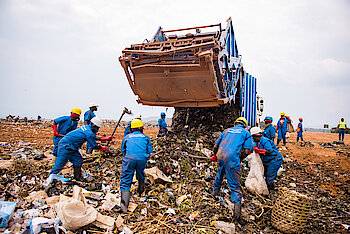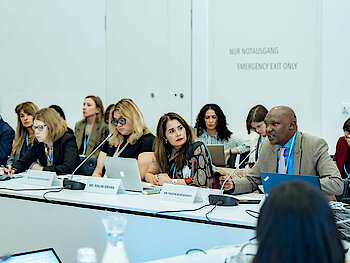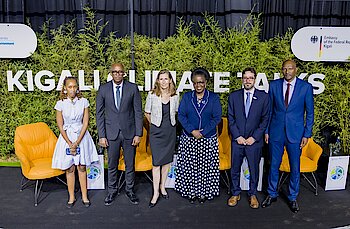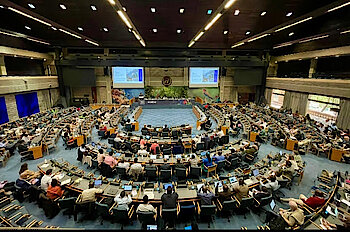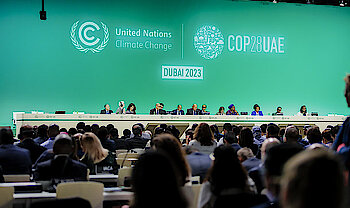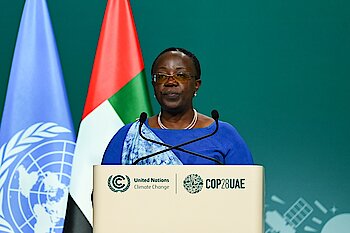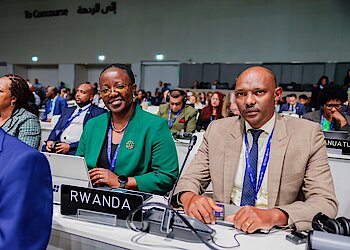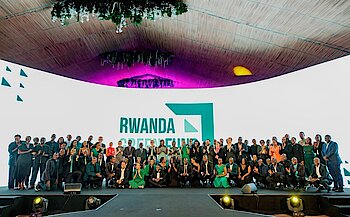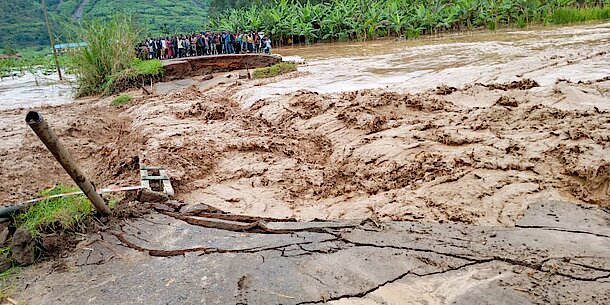
Essential things to know about the loss and damage due to climate change
The evidence of both global and local climate change impact is beyond dispute. There are clear effects of climate change occurring all across the planet. This includes unavoidable risks such as sea-level rise, desertification, and land degradation, while other direct consequences are heatwaves, floods, droughts, and other occurrences.
However, not all countries are equally impacted. There is no doubt that developing countries are mostly affected by climate change impacts; also referred to as loss and damage, and their capacity to deal with these effects is severely constrained due to the high cost and it is beyond their ability to adapt. This has led to an increase in calls for developed countries to compensate developing countries for the harm caused by climate change.
In fact, communities' abilities to avoid, prepare for, and manage with the impacts of climate change are actually hampered by a variety of capacities, experiences, and impediments. Imagine a village that has experienced a devastating flood, where a vulnerable population lives in slums with unsafe housing, a high population density, fragile infrastructures, limited access to essential services, higher proportionate costs of living, food insecurity, and increased health risks. Such a village will face a huge damage and loss from flood than any other community.
Some of the damage and loss could be the loss of human life, damage to property, destruction of crops, loss of livestock, non-functioning of infrastructure facilities and deterioration of health condition owing to waterborne diseases. There are also other associated impacts, such as the damage to infrastructure also causes long-term impacts, like the disruptions to clean water and electricity, transport, communication, education and health care. Sometimes, the damage and loss go beyond and destruct the fundamentals parts of history, identity, language and culture and lead to people migration. This truly indicate that the damages losses are irreversible.
Who is liable for these losses and damages?
This was a critical and controversial question during the climate negotiation from subsequent Conference of Parties (COPs) of the UNFCCC. This all started from the developed nations that have invented the combustion of engine, and they have benefited from burning fossil fuels. This was one key cause of temperature change due to increase of greenhouse gas emissions attributed to it. However, developed countries did not refer the loss and damage as a compensation issue. On other hand, the developing countries are the victim and in addition to this, their carbon footprint are small, such as Africa is responsible for only 4% of global emissions.
The losses and damages is important to be considered because it hampers the sustainable economic development of developing world. Therefore there is a need for resource to respond and rebuilt as developing countries are fighting for mitigation, adaptation as well as covering the cost of losses and damage from climate change induced impacts while their ability is very limited.
As a solution, COP27 delivered an historic outcome on the losses and damage fund, this decision taken in Egypt brings hope for the vulnerable impacted people and community for the global south that represent 80% of the world’s population and it is huge steps taken for climate justice.
What to be addressed under the losses and damage fund (LDF)?
As the losses and damage fund has been established, there is other steps to be taken to make it operational and fund mobilization start. The Loss and Damage Fund has great potential to alleviate the severe shocks due to climate change in vulnerable countries. LDF is an essential aspect for climate justice and it will help to address the geographic imbalance between the cause and effect of climate crisis.
However, for the fund to be effective, the root cause of climate change must be tackled and that involves reducing emissions.
More and more countries will experience the terrible effects of climate change unless emissions are dramatically cut. The world urgently needs to find more resources for mitigation, adaptation and loss and damage so that climate change will not erode humanity's chances to deliver on the sustainable development goals.
Topics
More posts
Rwanda to embark the development of Short-Lived Climate Pollutants Plan
Image: Nduba Landfill in Kigali City, (The landfll is known as one source of methane gas which is the greenhouse gas and the short lived pollutants);…
RWANDA’S NEGOTIATORS ARE IN BONN PUSHING FOR CLIMATE FINANCE
Rwanda’s negotiators led by Mr. Faustin Munyazikwiye – Deputy Director General of the Rwanda Environment Management Authority (REMA) – are in Bonn,…
Rwanda and Germany launch the “Kigali Climate Talks”
On 9 May 2024, Dr Jeanne d’Arc Mujawamariya, Rwanda’s Minister of Environment, and Heike Uta Dettmann, Ambassador of the Federal Republic of Germany,…
Tackling Short-Lived Climate Pollutants: Insights from CCAC2024 Conference
The Climate and Clean Air Conference 2024 (CCAC2024), took place in Nairobi, Kenya, on the sidelines of the Sixth session of the United Nations…
RWANDA WELCOMES HISTORIC COP28 DECISION TO TRANSITION AWAY FROM FOSSIL FUELS
The Government of Rwanda has welcomed the ground-breaking decision made at the 28th Conference of the Parties (COP28) to the United Nations Framework…
NATIONAL STATEMENT - COP28 UN CLIMATE CHANGE CONFERENCE
Delivered by Dr Jeanne d’Arc Mujawamariya, Minister of Environment
To begin, I express my gratitude to His Highness Sheikh Mohamed bin Zayed…
Follow the UNEP Pavilion Discussion on the Role of Industry & Finance in Supporting the Adaptation Agenda at COP28
This session, which comes at the conclusion of Industry Day is designed to offer comprehensive insights into the roles of industry and finance in…
Rwanda to call for more ambitious climate action at COP28
At this year’s UN Climate Change Conference, known as COP28, Rwanda will call for more ambitious climate action, a doubling of funding for adaptation…
Rwanda Green Fund Celebrates a Decade of Impact
The Rwanda Green Fund has marked its 10th anniversary, a remarkable milestone of transformative impact in Rwanda. Established in 2012, the Fund has…
